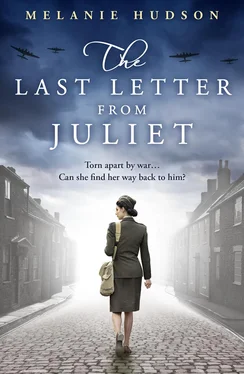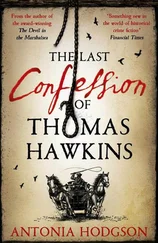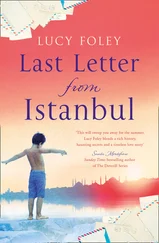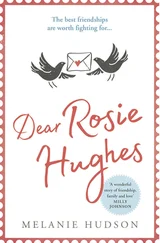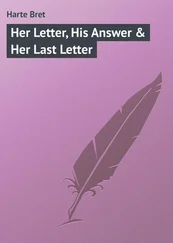I turned to face him, the spanner still in my hand. I eyed him as a mouse would eye a smiling ferret. ‘Start again?’ I asked.
His eyes flashed brightly. ‘Exactly! Let’s pretend this is the first time we ever met, right here, right now …’
I hesitated.
‘I suppose I can do that. You were … quite, helpful yesterday, after all. But I still can’t take you up today …’ I softened ‘no matter how sweetly you smile …’
He laughed. I laughed. It was nice. Too nice. I remembered Charles.
‘But I really must get on. I have the engine to finish and then I really do need to take a good look at that rudder. Let’s say … same time tomorrow, and if the weather is fine, I’ll take you up.’
He visibly deflated. I turned back towards the engine.
‘Sorry, yes, I’ll leave you to it,’ he said to my back. ‘Till tomorrow, then?’
I nodded without looking around. I didn’t want to be rude or play with him, truly, but there was something in his smile, in the touch of his hand on my shoulder. He interrupted my thoughts by turning at the barn door.
‘I don’t suppose you’re free later this afternoon. Say, in a couple of hours, or so?’
I bent to glance at him under the wing.
‘Today?
‘Today.’
‘This afternoon?’
‘Yes. They’re putting on an afternoon tea and an early Christmas party for the children in the village hall. I’ve been asked to help out – organise games, play the guitar, that kind of thing – and I thought you might like to come, if you’ve finished here, that is.’
I considered the afternoon ahead. There was no sticky rudder. I made that up. Charles was out with his father and Lottie was sleeping. There really was no reason for me to say no, and yet, there was every reason for me to say no.
‘I don’t understand this change in you,’ I said. ‘You were quite … shouty, yesterday.’
‘Shouty?’
‘Yes, shouty. And now you seek my company, even though I’m an irresponsible and spoiled little rich girl.’
He tilted his head to one side.
‘I didn’t say that.’
I waited for him to think about it.
‘Well, not those exact words.’
‘Thank you for the offer,’ I said, suddenly coming to my senses, ‘but I’m not really dressed for …’
‘Nonsense! You look perfect!’ His eyes were so bright. So alive. So blue. ‘Come on, it will be fun! Come coddiwomple with me.’
Now, that got me. I smiled.
‘Coddiwomple?’
He nodded. We were still communicating through the gap between the two wings of the Tiger Moth.
‘I never heard of such a word.’
‘Oh, it’s a word,’ he said. ‘And I’ll tell you what it means if you come with me. How about I treat you to afternoon tea? Look, I’d love to know all about the flying circus, and I’d love to talk to you about flying, that’s all. I want to know about the flying fox. You, well, you fascinate me, Juliet.’
Fascinate? Well …
I knew I should walk away, stride out of the barn, open the gate, march up the hill and not look back. But the fire in his eyes was just too bright. It’s always the eyes that get you. He drew me in and I so desperately wanted to be drawn in.
‘All right,’ I said, in as nonchalant a manner I could muster. ‘Why not? But I’ll have to finish up here, first.’
He dashed around the wing and joined me by the engine, talking off his heavy overcoat and placing it on an obliging hay bale before appearing by my side, full of enthusiasm.
‘In that case, think of me as your apprentice. How can I help?’
‘No one works on my aircraft but me, I’m afraid.’ I nodded towards the comic left abandoned on the bale. ‘Perhaps you could carry on reading your newspaper …’
He laughed and returned to lounge on the hay bale while I worked away.
‘But why don’t you want to know what coddiwompler is?’ Edward asked as we sauntered, arms swinging, down the lane to the village, my hair still held back with a rag. I’d taken off my overalls but my flying jacket was a must. Yes, it was far too big and smelt of a mixture of fuel and cigars, but it was like being wrapped in Pa’s arms again, and I treasured it.
‘Because you made it up.’ I flashed him a quick smile as we walked down the lane.
‘Well, I’ll tell you anyway, because I think you’re a fellow coddiwompler, you just don’t know it, and that would be terrible.’
‘What would?’
‘To be one, and to never to know.’
We arrived outside the village hall. He’d got me now. I stopped
‘Go on then,’ I said. ‘Tell me.’
He shook his head.
‘It’s too late. We’re here.’ He leapt up the steps to the hall. ‘You’ve missed your moment. I’ll have to tell you later …’ He winked and opened the door for me to step inside. ‘Or tomorrow, when we go flying.’ I stepped through the door and as I did so our hands brushed, and not quite by accident, I thought.
We spent the afternoon helping with the teas and making paper chains and Christmas cards with the children. Edward had a natural manner and was clearly the darling of the ladies’ committee. It was light. It was easy. It was fun. And as the afternoon moved on, I had the distinct feeling that E. Nancarrow was exactly the sort of man my mother had warned me to steer clear of.
When the children began to disperse, we took a moment to wander away from the hubbub of the hall to sit on the harbour wall. We sipped whiskey from Edward’s hip flask and talked of flying. The inevitable moment came when we began to explore into each other’s lives more purposefully, to tentatively probe, to edge-in sideways.
Edward began. He wanted to know the ins and outs of how a young woman, barely twenty years old, had spent her formative years as the child star of a flying circus, able to nip about the country in her own aircraft.
I explained some, but not all, of my story …
My father, Louis Caron, was a philanthropic and yes, a wealthy, man. He was the proud owner of the Caron Flying Circus , which meant that I had rarely spent more than half a day straight with my feet on the ground. On my twelfth birthday I was strapped to the wing of a Gypsy Moth and told to smile and wave at the crowd. I loved it.
My mother was a descendant of French Romany Gypsies, albeit two or three generations removed, but she retained that air of exotic adventure about her and was a tigress of a woman. I didn’t take after her very much, I explained, except for a genetic disposition for slender ankles and copper hair. On my thirteenth birthday, Father argued the case with Mother that it was time for me to join the circus as a pilot – I had been flying duel-seated for years and could handle an aircraft as well as anyone he knew. I’d be wonderful, he said, and an asset to the show.
Mother asked father to leave us alone for a moment. She sat me down in the garden and took a while searching under leaves until she found what she was looking for – a caterpillar. She held the caterpillar in her hand and began to talk of butterflies, explaining how caterpillars are happy enough, to begin with, with their little caterpillar bodies and caterpillar feet, because they don’t know any better, but eventually, there was an awakening within them – a realisation that it was time for a change, to evolve into a completely new being – to blossom, to fly. She said that the caterpillar, quite wisely, chose to spend some time alone before it flew – to cocoon itself in its own thoughts for a while – and then, when it was ready, it shed the trappings of adolescence and transformed itself completely by growing wings and, at just the right time, took to the skies and flew.
She said, ‘Juliet. Your father has kept you a boy for far too long. It is time to shed your boy-like caterpillar frame, let go of those clumsy feet, hunched shoulders and flat-framed body. It is time to chrysalis into the woman your body is aching to become, which is why I have decided to send you to school – yes, there is no point arguing – for two years, with other girls your own age who can teach you how to become a woman. Join the circus now, by all means, but only on the proviso that, at fifteen, you will go to Paris and become a butterfly. Those are my terms.’
Читать дальше
